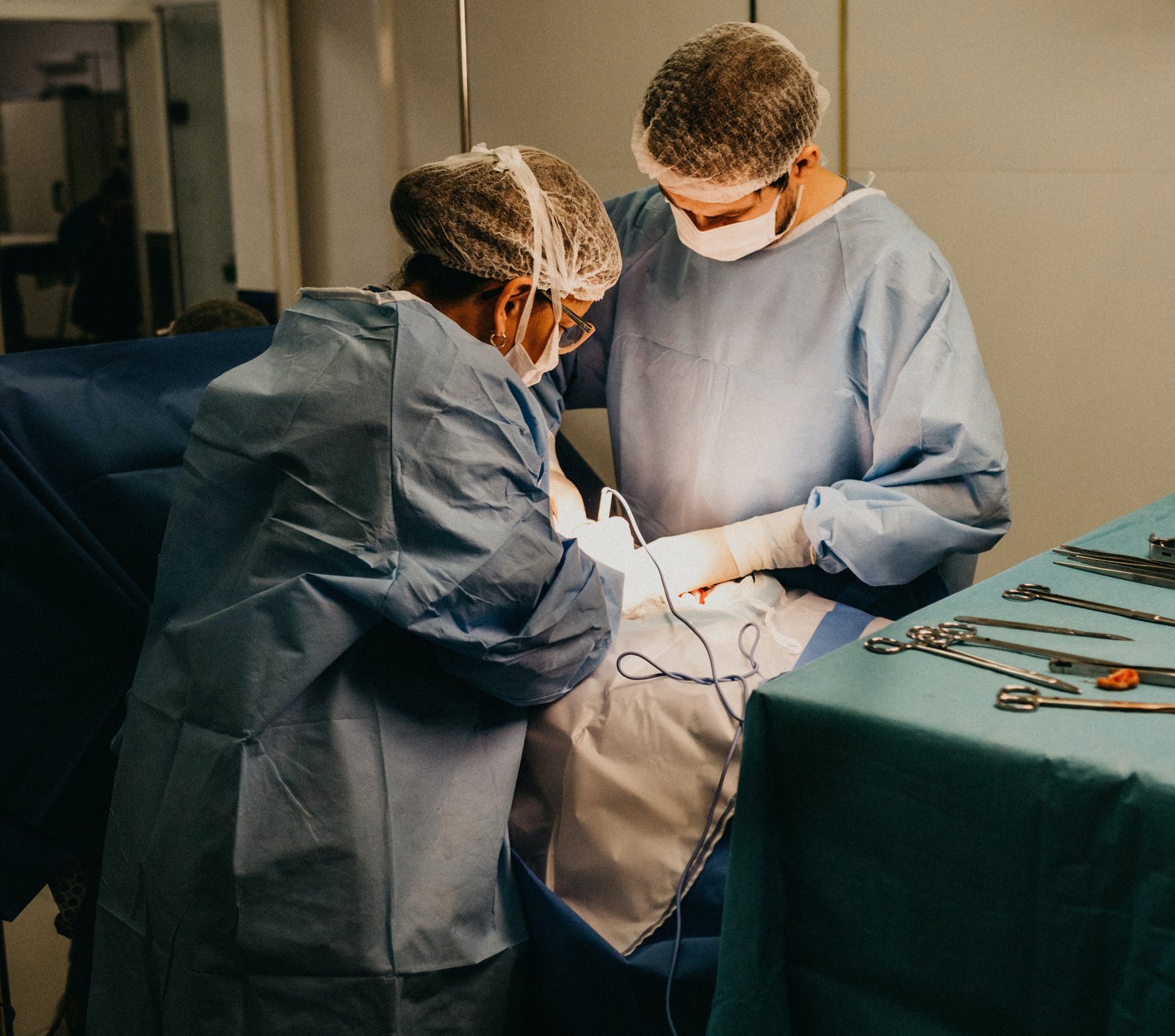
Hemorrhoids can be a source of great discomfort for many people, and surgery may be the only option when all other treatments have failed. But with surgery comes fear and anxiety about the pain involved. Many people wonder if hemorrhoid surgery is as painful as they imagine. There is no one-size-fits-all answer to that question, as everyone’s pain tolerance and experience will differ. However, it is important to understand the different types of hemorrhoid surgery and available pain management techniques. In this article, we will delve deeper into the truth about hemorrhoid surgery and explore the ways in which pain can be managed both during and after the procedure. So if you’re considering hemorrhoid surgery or simply curious about it, read on to discover the truth about how painful it is.
Understanding hemorrhoid surgery
Hemorrhoid surgery is a procedure that is designed to remove hemorrhoids. Hemorrhoids are swollen veins in the anus and rectum that can cause pain, itching, and bleeding. There are two types of hemorrhoids: internal and external. Internal hemorrhoids are inside the rectum and can cause bleeding and discomfort, while external hemorrhoids are outside the anus and can cause pain and itching.
Surgery for hemorrhoids is typically reserved for cases where other treatments have failed. The surgery can be performed outpatient, meaning the patient can go home the same day. Depending on the severity of the hemorrhoids, several different types of procedures can be used.
Types of hemorrhoid surgery
The most common types of hemorrhoid surgery are:
– Hemorrhoidectomy: This is the most invasive type of hemorrhoid surgery and involves removing the hemorrhoids using a scalpel, laser, or surgical scissors. The procedure is usually performed under general anesthesia and can take up to an hour to complete.
– Stapled hemorrhoidopexy: This procedure involves using a circular stapler to remove a portion of the rectal tissue, which pulls the hemorrhoids back up into the rectum. The procedure is less invasive than a hemorrhoidectomy and is usually performed under general anesthesia.
– Doppler-guided hemorrhoidal artery ligation (DGHAL): This procedure involves using a Doppler probe to locate the arteries that supply blood to the hemorrhoids. The arteries are then tied off, which reduces the blood flow to the hemorrhoids and causes them to shrink.
What to expect during and after hemorrhoid surgery
The patient will be given either local or general anesthesia during hemorrhoid surgery. The surgeon will then perform the chosen procedure, which may involve cutting into the tissue around the hemorrhoids. After the surgery, the patient will be monitored briefly before being allowed to go home.
After hemorrhoid surgery, it is common to experience pain, discomfort, and bleeding. The amount of pain experienced will depend on the procedure used and the individual’s pain tolerance. It is important to follow the surgeon’s instructions for pain management, including taking pain medication, using ice packs, and avoiding sitting for long periods.
Potential risks and side effects of hemorrhoid surgery
As with any surgery, there are potential risks and side effects associated with hemorrhoid surgery. These may include:
– Bleeding
– Infection
– Pain
– Constipation
– Incontinence
– Scarring
Discussing the potential risks and side effects with a healthcare professional before undergoing hemorrhoid surgery is important.
Pain management after hemorrhoid surgery
Pain management is an important part of the recovery process after hemorrhoid surgery. Several different techniques can be used to manage pain, including:
– Pain medication: Over-the-counter or prescription pain medication can be used to manage pain after hemorrhoid surgery.
– Ice packs: Applying ice packs to the affected area can help to reduce swelling and discomfort.
– Sitz baths: Sitting in a warm bath can help to soothe the area and reduce discomfort.
– Avoid sitting for long periods: Sitting for long periods can put pressure on the affected area and cause discomfort. It is important to take frequent breaks and avoid sitting for extended periods.
Recovery time from hemorrhoid surgery
The recovery time from hemorrhoid surgery will depend on the type of procedure used and the individual’s overall health. Generally, it can take one to three weeks to fully recover from hemorrhoid surgery. During this time, following the surgeon’s instructions for pain management, rest, and activity level is important.
Alternative treatments for hemorrhoids
While surgery may be necessary in some cases, several alternative hemorrhoid treatments may be effective. These include:
– Topical creams and ointments
– Sitz baths
– Increased fiber intake
– Increased water intake
– Exercise
Discussing alternative treatments with a healthcare professional before trying them is important.
Myth-busting: debunking common misconceptions about hemorrhoid surgery
There are several misconceptions about hemorrhoid surgery that can cause fear and anxiety. Some of the most common misconceptions include:
– Hemorrhoid surgery is incredibly painful: While some discomfort is associated with hemorrhoid surgery, it is usually well managed with pain medication and other techniques.
– Hemorrhoid surgery is only for severe cases: Hemorrhoid surgery may be necessary in some cases, but it is not always the first line of treatment.
– Hemorrhoid surgery is a long and complicated procedure: While some types of hemorrhoid surgery can be more complicated than others, most procedures are relatively straightforward and can be performed on an outpatient basis.
Tips for preparing for hemorrhoid surgery
If you are preparing for hemorrhoid surgery, there are several things you can do to make the process as smooth as possible. These include:
– Talking to your healthcare provider about the procedure and what to expect
– Following any pre-operative instructions provided by your surgeon
– Arranging for someone to drive you home after the procedure
– Stocking up on any necessary supplies, such as pain medication and ice packs
– Taking time off work to rest and recover
Frequently Asked Questions
Is hemorrhoid surgery painful?
Hemorrhoid surgery can cause discomfort and pain after the procedure, but the pain level can vary widely among individuals. It's worth noting that advancements in medical techniques and pain management have made the procedure much more tolerable than in the past.
How long does the pain last after hemorrhoid surgery?
The most intense pain usually occurs within the first few days after surgery, but some level of discomfort might persist for a few weeks. Pain can often be managed with medications and lifestyle adjustments.
What can I do to manage the pain after hemorrhoid surgery?
Over-the-counter pain medications or those prescribed by your doctor can help manage the pain. Additionally, sitz baths, where you soak the affected area in warm water, can be soothing. High fiber diet and drinking plenty of water can also help in reducing discomfort by softening stools and preventing constipation.
Is there a risk of complications with hemorrhoid surgery?
As with any surgical procedure, there's always a risk of complications. These might include bleeding, infection, reaction to anesthesia, or urinary retention. There's also a small risk of damage to the anal sphincter, which can lead to issues with bowel control.
Are there less painful alternatives to traditional hemorrhoid surgery?
Yes, there are several less invasive treatment options available for hemorrhoids such as rubber band ligation, sclerotherapy, and infrared coagulation. These procedures often cause less pain than traditional surgery but might not be suitable for larger or more severe hemorrhoids.
Can I prevent hemorrhoids from recurring after surgery?
While surgery often effectively addresses existing hemorrhoids, new ones can form if predisposing factors are not controlled. Lifestyle changes such as maintaining a healthy weight, eating a high-fiber diet, staying hydrated, and avoiding straining during bowel movements can help prevent recurrence.
Can hemorrhoids be treated without surgery?
Yes, hemorrhoids can be managed without surgery in many cases, especially if detected early. This is typically done through lifestyle changes, over-the-counter treatments, and, if needed, prescription medications.
Conclusion: weighing the pros and cons of hemorrhoid surgery
Hemorrhoid surgery can be scary, but it may be necessary in some cases. While some discomfort is associated with the procedure, it is usually well managed with pain medication and other techniques. It is important to weigh the pros and cons of hemorrhoid surgery and discuss all treatment options with a healthcare professional before deciding. With the right preparation and support, hemorrhoid surgery can be a successful and relatively painless procedure.



